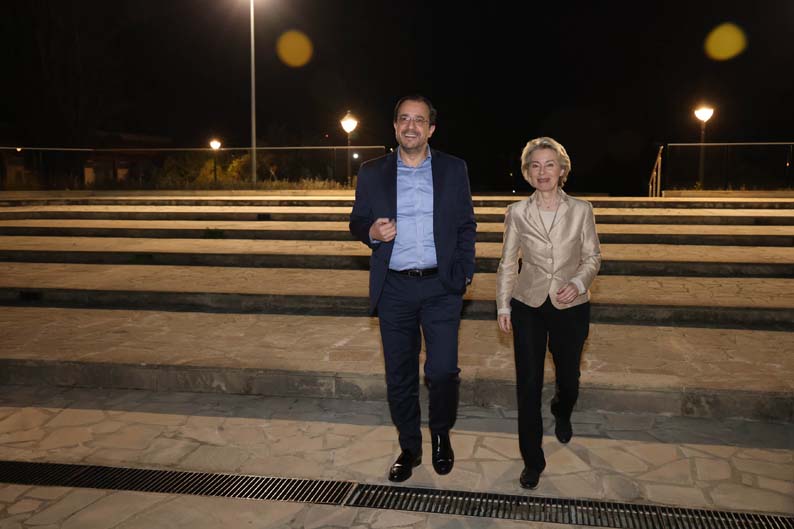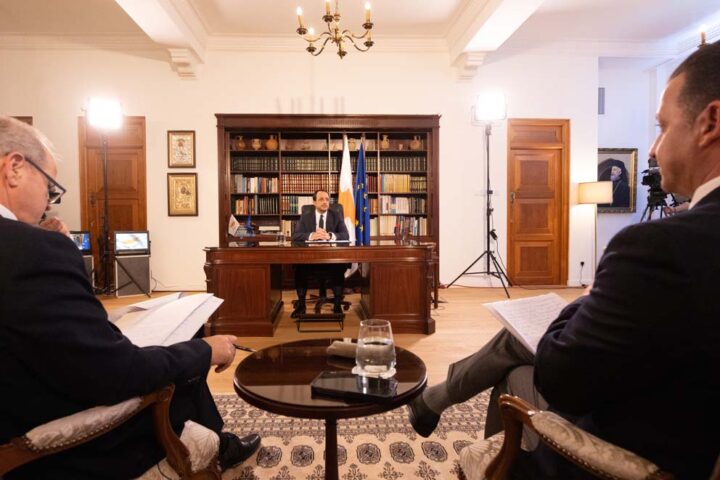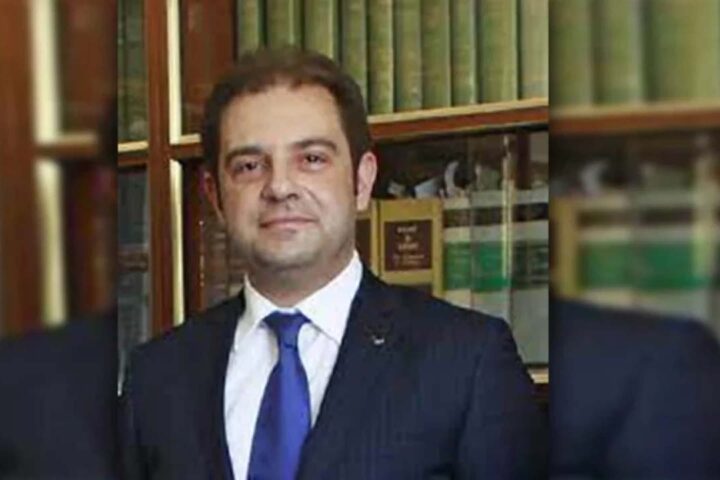In the past few weeks I have argued that the traditional negotiations process in the Cyprus problem is flawed, and that the only way to get the leaders back to the table to find a negotiated settlement is to share the burden through a slow, incremental process of “deliberative democracy”.
Democratising the process is the necessary condition for reaching a negotiated settlement. But it is not sufficient. We also need the international community to be strategically coordinating how they create the right incentives to get the leaders to agree simply on a new process design, let alone to reach a settlement. Here, the role of the EU (and the US, assuming that it remains geopolitically engaged) will be crucial.
Below are some ideas for what the EU can offer. Importantly, it is not just “a load of money”. It is far more strategic than that, which means that it will need a different set of EU people focused on it.
How the US did it with Greece
I take my inspiration from the way in which the US seems to have coaxed Greece, through different governments, into being one of its most important partners in south-eastern Europe. Not so long ago, Greece was a pariah in Europe, with its economy on the floor and talk in some circles of kicking it out of the Eurozone and even the EU. Today, after fixing the “name problem” with what is now North Macedonia, kicking out Russian diplomats on security grounds, and keeping its cool when Turkey appeared to be threatening to move overnight onto Aegean islands, Greece is reaping the benefits of increasingly close ties with the US.
The best-known example is that Greece was promised F-35 aircraft from the US long before Turkey secured a promise of F-16s. However, in my view the most critical development is the development of the port of Alexandropoulos. Alexandropoulos is now a key transit point for US and NATO troops (a military base in all but name). In addition, with the inauguration in February of the floating, storage and regasification unit (FSRU), from which natural gas will travel by pipeline to the Balkans and eastern Europe, Alexandropoulos is rapidly establishing itself as the key hub for both security and energy in south-eastern Europe.
What does this mean? It means that even if Greece gets into economic trouble in future, the EU would not even think about trying to kick it out of the EU. It is too strategically important. I cannot say for sure but I have always assumed that the US dangled all of these potential future carrots in front of Greek foreign ministers and prime ministers, and that this helped them to act on long-standing highly sensitive issues like that of North Macedonia.
Applying the same logic to Cyprus
To get the Cypriots, and especially Greek Cypriot politicians, really committed to a negotiated settlement, we now need to apply that logic to Cyprus. What can the EU (or US) offer Cyprus, which makes it feel “geopolitically upgraded”, therefore indispensable to the international community and therefore safe from the designs of others?
My premise here is that a negotiated settlement, even if it ends up in something other than the classic bizonal bicommunal federation, is a really hard to sell for Cypriots on both sides. They have not governed together for 60 years. They need a really big carrot, which is not just money, to convince them that they will be considerably better off and, importantly, much safer, with a negotiated settlement than without one.
The US is already “broadening and deepening” its security cooperation with the Republic of Cyprus (Greek Cypriots). At the moment, however, this move does not seem to be tied to anything related to a negotiated settlement of the Cyprus problem but rather to weaning Greek Cypriots off historical ties with Russia.
It would in any case be difficult for Cyprus to match Greece and become the defence hub in the Eastern Mediterranean region because Cyprus is not a member of NATO. The support of the Progressive Party of Working People (AKEL) will be essential for any negotiated settlement and you are not going to get it if NATO membership is part of the deal.
We need to think of something else.
“The East Med Humanitarian and Migration Hub”
After discussing options with some friends, one idea is a significant upgrade of the role that the Republic of Cyprus is already playing in humanitarian assistance. The government has received heaps of praise from several countries for the quality of its support in the rapid and unexpected evacuation of thousands of people from South Sudan in 2023. It has been supporting evacuations from Lebanon and Gaza, and I understand that it has also been closely involved in contingency planning for much larger flows of people. Despite the huge logistical challenges the government has also kept alive the proposal for a humanitarian maritime corridor for Gaza.
 Why not offer the carrot of a permanent humanitarian coordination base here in Cyprus – but with the stick that this only happens after a negotiated settlement of the Cyprus problem?
Why not offer the carrot of a permanent humanitarian coordination base here in Cyprus – but with the stick that this only happens after a negotiated settlement of the Cyprus problem?
One idea from a friend, for example, was to move the EU Directorate-General for European Civil Protection and Humanitarian Aid Operations (DG ECHO), currently based in Brussels, here to Cyprus. Or one could revive the EU Regional Trust Fund in Response to the Syrian crisis (MADAD), base it here and broaden it to the whole region.
Whatever the big important institute is, it would have to be THE centre and not just an offshoot. That way it brings jobs, conference tourism and so on, which will make it popular with voters, and, critically, it also brings the geopolitical clout that the Republic of Cyprus so clearly craves as a small, currently vulnerable country.
This is just one idea. The EU may already be considering locations for other centres which would meet the requirement of significantly upgrading Cypriots’ geopolitical clout and security but offering it only on condition of finding a negotiated settlement.
A separate track is already under way with the EU’s strategic dialogue with Turkey: carrots essentially offered for good behaviour or strategic cooperation. The Greek Cypriots are worried that the EU-Turkey dialogue is at risk of being de-coupled from the Cyprus problem. I think we would all be better off it there still remains some kind of link, as long as there is also a strategic approach to the Greek Cypriots too.
Which part of the EU drives the process?
If we agree that the EU needs a political, strategic steer on Cyprus, the next key issue is which part of the multi-headed EU should drive this process: the European Commission (if so, at what level), the External Action Service (EEAS) or the European Council (comprising heads of government)?

At the moment the EU’s direct engagement with the Cyprus problem is primarily done through the Task Force for the Turkish Cypriot community. This is part of the Directorate-General for Structural Reform Support (DG REFORM)—basically the European Commission arm of the troika. The Task Force has done a great job amid supremely frustrating circumstances to get the protected designation of origin (PDO) for halloumi/hellim in 2021, the opening of the one-Stop Shop on Green Line trade in 2023 and further progress this year on a common solar plant in the UN-monitored buffer zone. However, it is limited in what it can do because its mandate and budget comes from the financial aid regulation and because it is simply not high up enough in the EU political food chain to make things happen.
So the Task Force will remain essential for day-to-day issues and technical issues on the ground. But for the EU to be able to make strategic political decisions, the political centre needs to be elsewhere.
In theory the most obvious home should be the European External Action Service (EEAS)—the EU’s diplomatic service. Its head, currently Josep Borrell, is both vice-president of the European Commission and the person who oversees the EU’s Common Foreign and Security Policy and Common Security and Defence policy.
The main obstacle for the EEAS is that the Greek Cypriots normally balk at the idea of the Cyprus problem being treated as a “foreign, non-EU” issue. You can’t place it in the European Council either because Cyprus and Greece sit on the Council and therefore Turkey would object.
A new home in the Commission Secretariat?
Another option, therefore, is to place the strategic thinking about Cyprus in the Secretariat-General of the European Commission. This is high up enough in the political food chain to have clout but without the problems of the EEAS or European Council. The Secretariat-General’s mandate, inter alia, is “to steer and coordinate the work across the entire Commission to ensure that all initiatives are aligned with the political priorities of the [European Commission] President”.
At this point, perhaps after the appointment of a new European Commission after the European Parliament elections this year, you could also put the Task Force for the Turkish Cypriot community under the Secretariat-General, so that all Cyprus problem-related issues are under one roof. You might send second someone from the EEAS to work on the Cyprus file, or (shameless plug!) hire an on-the ground adviser with bagloads of Cyprus problem experience.
The Secretariat could also be the home of the high-level EU envoy sought by the Republic of Cyprus president, Nikos Christodoulides. But it will come with an array of conditions which the Task Force currently does not have the clout to insist upon, such as taking that particular official off the pre-fabricated buildings file, offering far more substantive gestures than the 14 diluted ones from the other week, and so on, while also leaning on Turkey and the Turkish Cypriots to make similar substantive gestures.
Once you have a strategically engaged EU (and hopefully US) and a redesigned process, you need to work on regional energy deals. More on that next time.
Fiona Mullen is Director of Sapienta Economics. She was very closely involved in the Cyprus negotiations from 2008 until early 2016, both as a staff member in the UN Good Offices in the intense Christofias-Talat period and as a consultant beforehand and afterwards.










